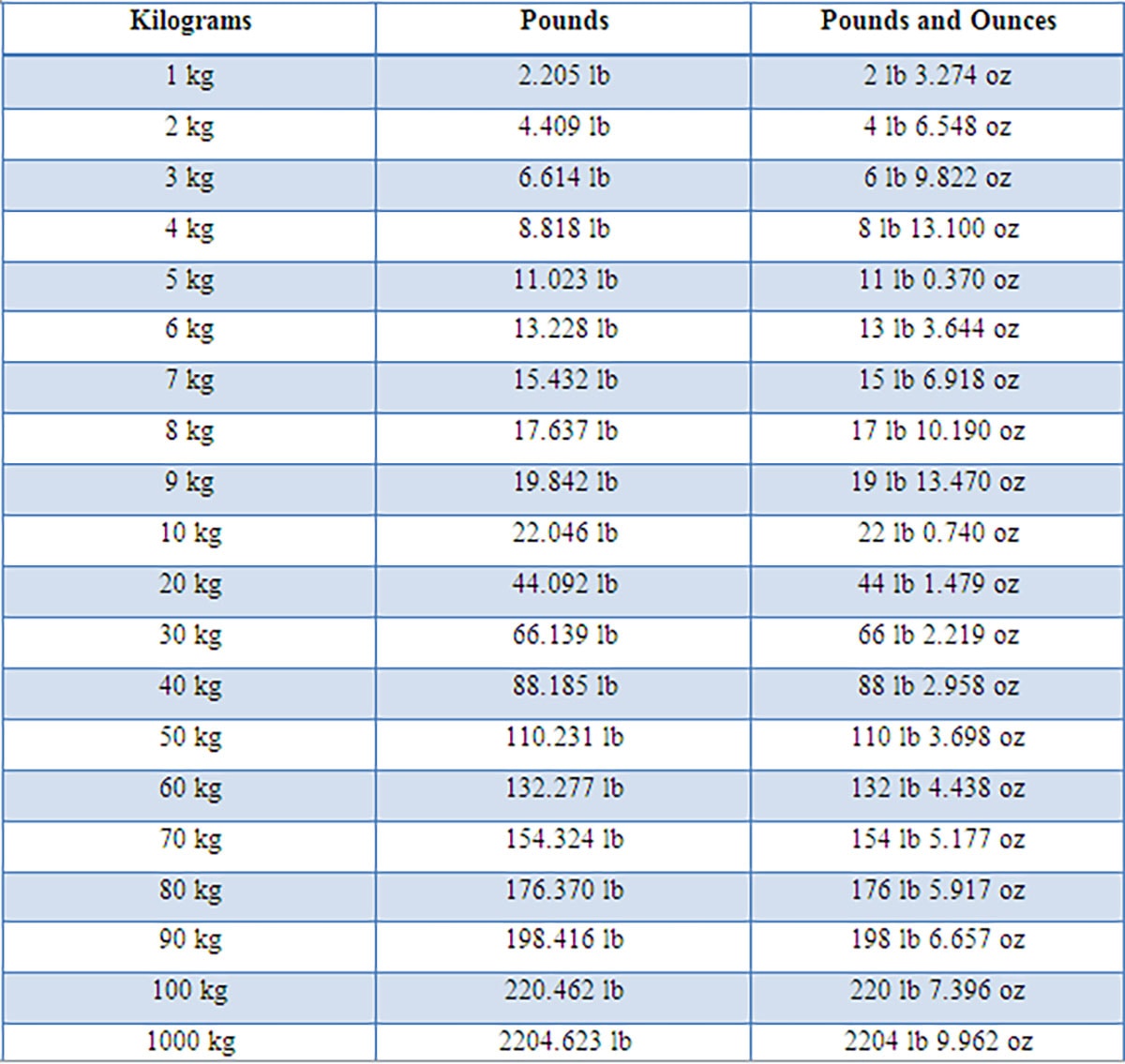100kg To Pounds

In a world where measurements vary across regions and disciplines, conversions between different units of weight are essential for accurate communication and understanding. One such common conversion is from kilograms (kg) to pounds (lbs), a conversion that often arises in various fields such as science, fitness, and everyday life.
The kilogram (kg) and the pound (lb) are units of mass used in different parts of the world. While the kilogram is the standard unit within the metric system, the pound is a unit of weight used primarily in the imperial and US customary systems. This discrepancy often leads to the need for conversion between the two units.
If you find yourself needing to convert kilograms to pounds, fear not! The conversion formula is straightforward:
1 kilogram (kg) is equivalent to approximately 2.20462 pounds (lbs).
Now, let’s delve into how this conversion can be done easily and efficiently. Here’s a simple step-by-step guide:
Table of Contents
ToggleStep 1:
Understand the Conversion Factor As mentioned, 1 kilogram equals approximately 2.20462 pounds. This value is the conversion factor that allows you to convert between kilograms and pounds. It’s essential to remember or have easy access to this conversion factor for accurate calculations.
Step 2:
Perform the Conversion To convert kilograms to pounds, you'll use the conversion factor of 2.20462.
The formula is simple: Pounds = Kilograms × 2.20462
For example:
- If you have 100 kilograms: Pounds = 100 kg × 2.20462 = 220.462 pounds
Step 3: Round Off if Necessary In practical applications, decimal points might be challenging to work with. Therefore, after obtaining the converted value, round it off to a suitable number of decimal places for convenience. In most cases, rounding to two decimal places should suffice.
In our previous example:
- 220.462 pounds can be rounded to approximately 220.46 pounds.
Understanding the conversion between kilograms and pounds is incredibly beneficial, especially when dealing with weights in different measurement systems. Whether you’re a student studying science, a fitness enthusiast tracking weight changes, or someone needing to communicate weights across different systems, mastering this conversion will be invaluable.
Fortunately, many digital tools, including online converters and smartphone apps, can swiftly perform these conversions for you. Additionally, memorizing or having easy access to the conversion factor simplifies and speeds up the process.
Conclusion
Converting kilograms to pounds involves a simple multiplication using the conversion factor of 2.20462. With a clear understanding of this conversion, anyone can perform these calculations accurately and efficiently, making everyday tasks involving weight measurements more manageable and precise.





